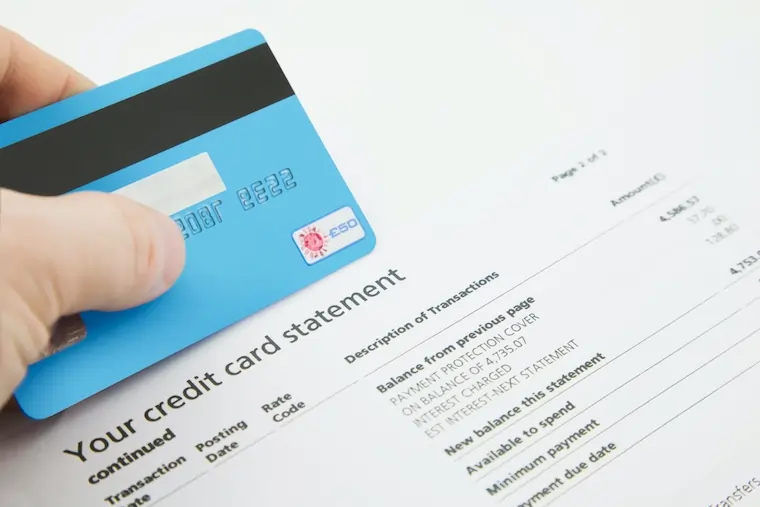In this article, we’re answering “How much should you pay on your credit card?” Not surprisingly, the answer is “it depends”.
Well in this article, we’re going to share the nuances that can help you decide how much you should pay on your credit card. We will also be answering common questions we receive on the topic.
This article is part of our free series on applying for credit cards in the USA, including how to get a US credit card with an ITIN number, which you can access here.
Feel free to use the table of contents to jump ahead to the sections most relevant to you.
Table of Contents
- How Much Should You Pay on Your Credit Card?
- Where Do I Find How Much I Owe on My Credit Card?
- Frequently Asked Questions
- Ready to Open Accounts With Banks in the USA?
How Much Should You Pay on Your Credit Card?
How much you should pay on your credit card will depend on your specific objectives, credit card interest, available cash, and other financial obligations. That said, the very least you should make as a monthly payment on your credit card balance is the minimum payment listed on your credit card statement.
That said, in other instances, paying off credit card balances may not be the best option for you either. In fact, paying a credit card balance in full may not meet your personal objectives, whether this includes maintaining a certain level of available cash or only meeting certain payment thresholds.
Additionally, it’s extremely important to meet the payment due date and to never miss a credit card payment on your credit card debt. This is especially important because credit card repayment is one of the fastest ways to both damage and improve your credit score. The reason for this is that credit cards report to the credit bureaus monthly.
In short, the most important things to remember when it comes to determining your credit card payment is paying the credit card on time and effectively managing credit card payments in line with your goals.
Individuals who are still searching for the right credit card, specifically a card with no security deposit (an unsecured credit card), can access this free article linked here for more information on how to apply for this type of credit card in the USA.
Do You Want More USA Banking Insights?
Sign up here to receive our Free USA Banking Starter Guide. It’s designed to help non-residents with opening bank accounts at top financial institutions in the US.
Where Do I Find How Much I Owe on My Credit Card?
To find out how much you own on your credit card, you have a few options available to you. These options include the physical credit card bill that you received in the mail, an electronic statement that you may have received from your credit card issuer, or your online banking account with the credit card issuer.
Let’s take a quick look at these options, starting with your credit card bill.
Credit Card Bill
Credit card bill refers to the physical statement that the credit card issuer will send to you in the mail. You can use this bill to find the specific amount that you own on your credit card each month. The specific line that you should look for will include the words “payment” and “due” often preceded by “minimum”.
Online Credit Card Statement
An online credit card statement contains the same information that is listed on a physical credit card bill. In fact, the only difference between the physical credit card bill and the online credit card statement is that one is electronic and the other is physical.
Frequently Asked Questions
Below are two of the most common questions we receive on this topic. If you have further questions you would like to ask our team, don’t hesitate to get in touch.
What Percentage Should I Pay on My Credit Card?
The percentage that you should pay on your credit card each month will depend on your objectives, available resources, and the balance that you are comfortable with carrying (if any). In other words, each person will have a different percentage that they will want to pay each month. However, in most cases, it is advisable to pay the entire balance, after the statement has been issued, in order to make sure that no interest is accrued on an ongoing basis.
How Much Should I Owe on My Credit Card?
Generally speaking, you should not owe anything on your credit card after the statement period. This is because owing money on a credit card results in interest being applied to the outstanding balance. With this in mind, if you want to minimize the costs of using your credit card, you should pay off the balance as soon as possible.
Ready to Open Accounts With Banks in the USA?
If so, you can get access to GlobalBanks USA (our dedicated US banking service) in just a few clicks.
GlobalBanks USA is a 100% personal account opening solution. It provides direct access to our team of US banking experts.
When you join, you receive…
+ Expert suggestions on where to open US bank accounts.
+ Step-by-step support to navigate opening US bank accounts.
+ Direct introductions to helpful and responsive bankers.
+ Plus, detailed guides to maximizing the value you get from your new US bank account.
And “yes!” GlobalBanks USA helps foreigners and non-resident individuals open bank accounts.
In fact, GlobalBanks USA even helps non-resident US LLCs and foreign & offshore entities.
To learn more about GlobalBanks USA, visit the product page to see how our team can help you successfully open US bank accounts!

